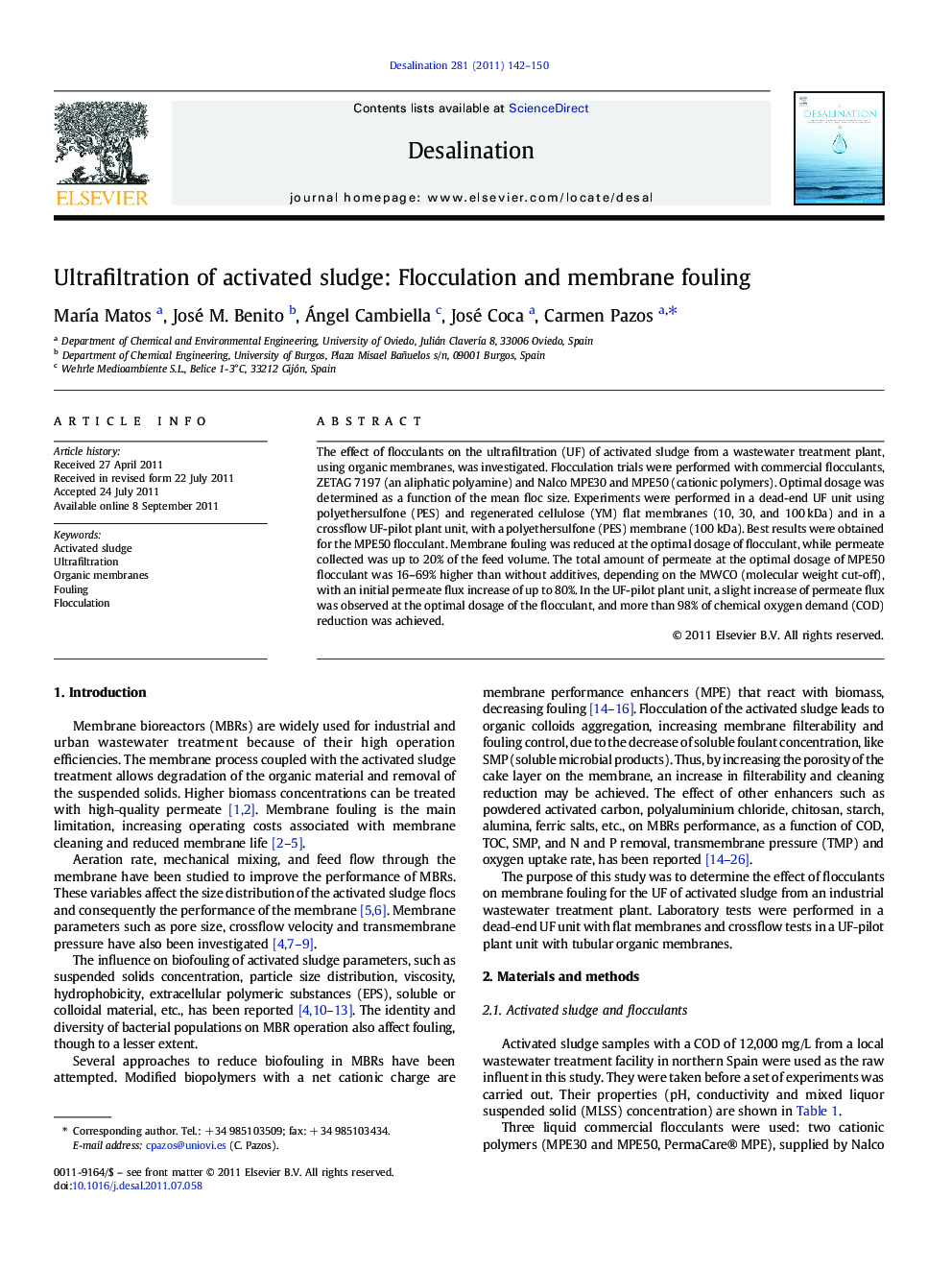| Article ID | Journal | Published Year | Pages | File Type |
|---|---|---|---|---|
| 624774 | Desalination | 2011 | 9 Pages |
The effect of flocculants on the ultrafiltration (UF) of activated sludge from a wastewater treatment plant, using organic membranes, was investigated. Flocculation trials were performed with commercial flocculants, ZETAG 7197 (an aliphatic polyamine) and Nalco MPE30 and MPE50 (cationic polymers). Optimal dosage was determined as a function of the mean floc size. Experiments were performed in a dead-end UF unit using polyethersulfone (PES) and regenerated cellulose (YM) flat membranes (10, 30, and 100 kDa) and in a crossflow UF-pilot plant unit, with a polyethersulfone (PES) membrane (100 kDa). Best results were obtained for the MPE50 flocculant. Membrane fouling was reduced at the optimal dosage of flocculant, while permeate collected was up to 20% of the feed volume. The total amount of permeate at the optimal dosage of MPE50 flocculant was 16–69% higher than without additives, depending on the MWCO (molecular weight cut-off), with an initial permeate flux increase of up to 80%. In the UF-pilot plant unit, a slight increase of permeate flux was observed at the optimal dosage of the flocculant, and more than 98% of chemical oxygen demand (COD) reduction was achieved.
► Effect of flocculants on UF of activated sludge using organic membranes. ► A slight increase on J was observed for the optimal dosage of flocculant. ► MPE50 flocculant caused a higher J increase, with no effect on membrane fouling. ► Initial water flux was completely restored after membrane cleaning. ► More than 98% of COD reduction was achieved, with less than 200 mg/L in permeates.
